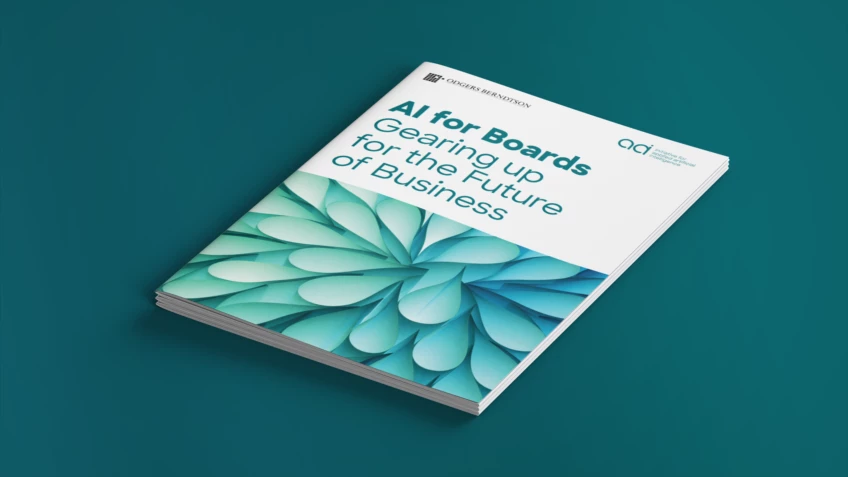"Künstliche Intelligenz wird der Gamechanger in der digitalen Transformation sein. Ich empfehle Vorständen und Aufsichtsräten dringend, sich mit dem Thema und seinen Implikationen gründlich auseinanderzusetzen und zu handeln!" Siegfried Russwurm, Vorsitzender Aufsichtsrat von Thyssenkrupp und Voith
In einer aktuellen Umfrage berichten 7 von 10 Unternehmen von "minimalen oder keinen Auswirkungen von KI“. Vielleicht fragen Sie sich, ob die KI-Revolution nicht übertrieben ist.
Aber was, wenn nicht KI das Problem ist sondern Sie? Ja, Sie haben frühere Technologiewellen erfolgreich gemeistert: Mobile, Digital und Big Data, um nur ein paar zu nennen. So haben Sie auch bei KI gehandelt und die Aufgabe an eine zuständige Einheit delegiert und diese für die Ergebnisse verantwortlich gemacht hast.
KI ist jedoch anders und erfordert die direkte und ernsthafte Beteiligung aller Vorstände.
Dieser Bericht beschreibt, wie sich KI auf die Rolle der Vorstände auswirkt – individuell und kollektiv – und gibt eine Anleitung, wie Sie den Wandel bewältigen können.
Unsere Diskussion stützt sich auf unsere umfangreichen Erfahrungen bei der Anwendung von KI in Unternehmen, ergänzt durch eine Vielzahl von Interviews mit Vorständen.
Autoren des Whitepapers:
- Philipp Gerbert, Future Shaper bei UnternehmerTUM und Director bei appliedAI Initiative
- Philipp Hartmann, Director of AI Strategy bei appliedAI Initiative
- Andreas Liebl, Geschäftsführer bei appliedAI Initiative
- Markus Trost, Partner der Global Tech Practice bei Odgers Berndtson
- Emanuel Pfister, Principal bei Odgers Berndtson
Wir danken Ihnen für Ihre Beiträge
- Alexander Eckert (Gerresheimer)
- Carola Wahl
- Christian Sallach (Wago Kontakttechnik)
- Dirk Ramhorst (Wacker Chemie)
- Frank Mastiaux (EnBW)
- Karsten Wildberger (EON)
- Martin Weidlich (Mahle)
- Matthias Ulbrich (Porsche)
- Matthias Weber (Sandoz Germany)
- Michael Tagscherer (Giesecke+Devrient)
- Pauline Lindwall
- Ralf Herbrich (Zalando)
- Reinhard Ploss (Infineon)
- Roland Busch (Siemens)
- Sabine Dietrich
- Sabine Jeschke (Deutsche Bahn)
- Sebastian Klauke (Otto Group)
- Siegfried Russwurm
- Stefan Vilsmeier (brainlab)
- Thomas Blunck (MunichRe)
- Wolfgang Hauner (Allianz)
